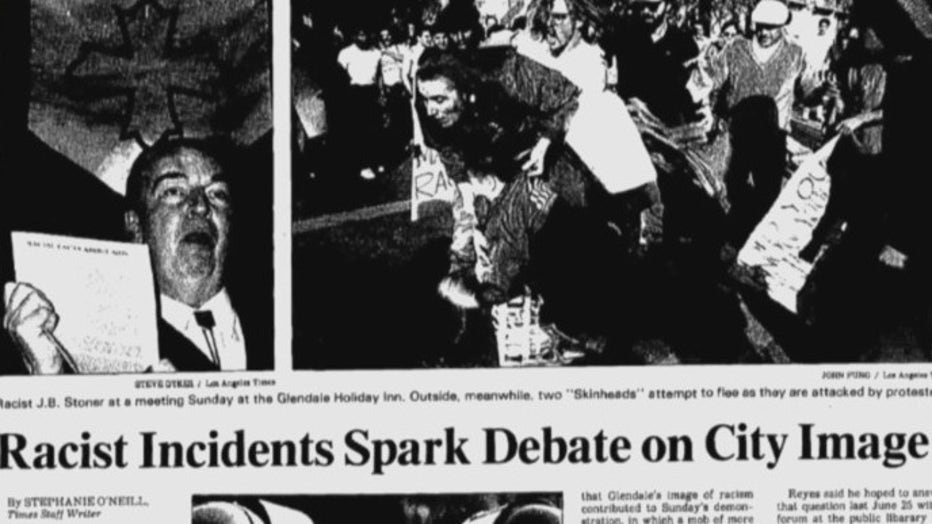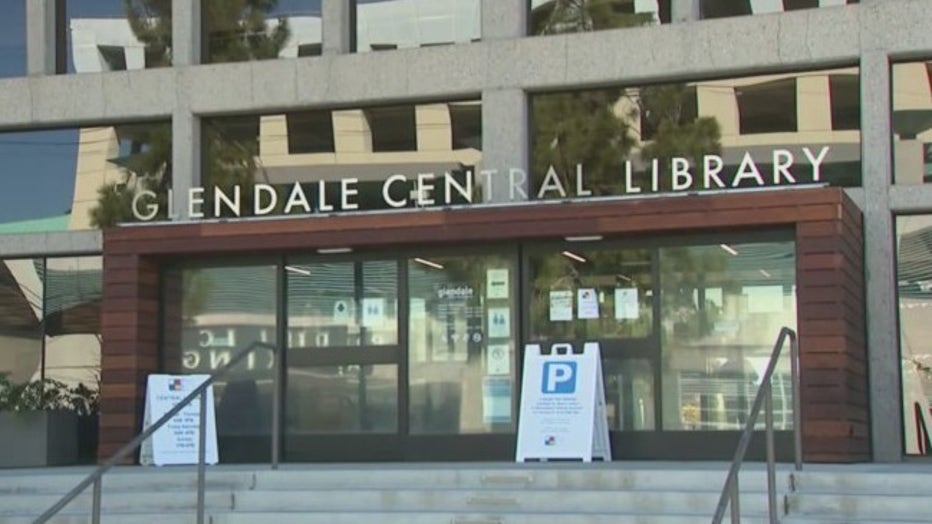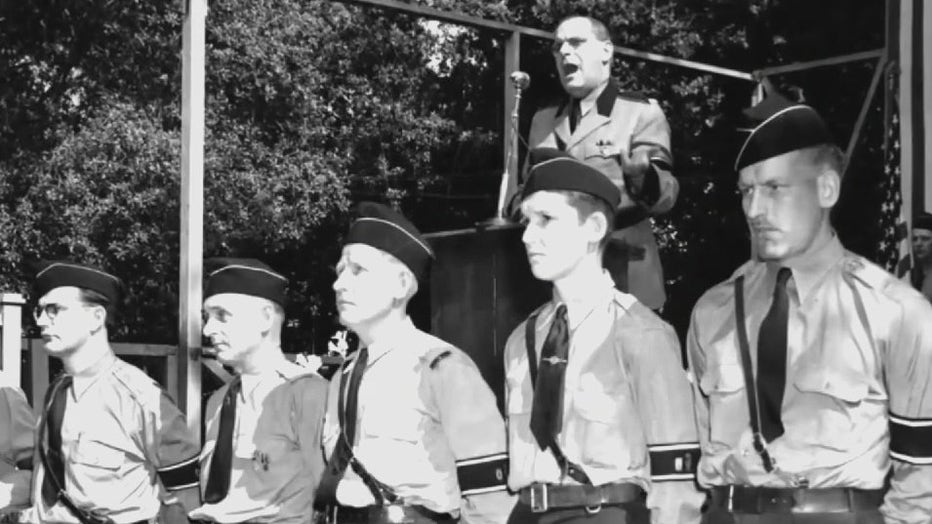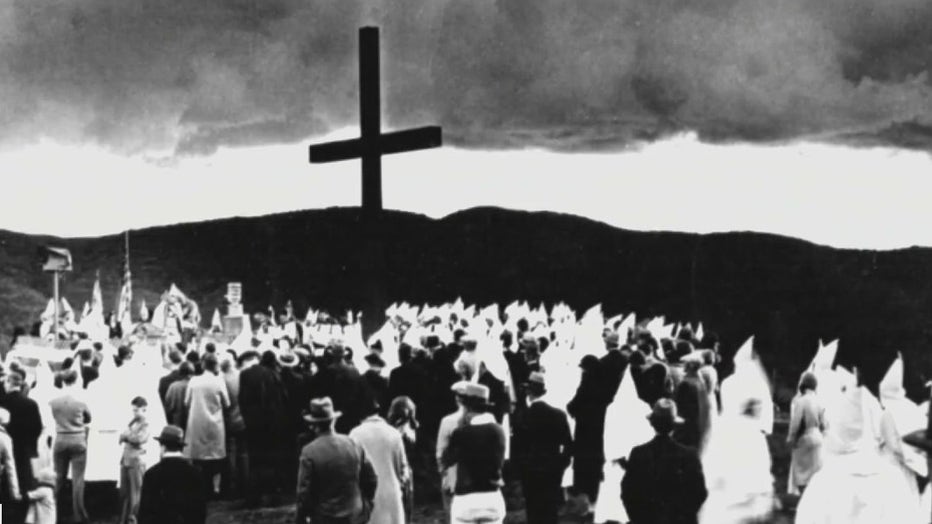California cities grapple with racist history of sundown towns
California cities, including Glendale, grapple with racist history of sundown towns
The practice of "sundown towns" dates to the 19th century and is named after signs that would tell Black people they needed to leave by "sundown."
LOS ANGELES COUNTY, Calif. - In California and throughout the nation, there's a history of sundown towns, which were places where Black people and minorities were excluded through informal and formal policies.
Tara Peterson, the Chief Executive Officer for the YWCA Glendale and Pasadena, a nonprofit organization aimed at ending racism and empowering women, explains the history of Glendale as a sundown town.
"One indicator of a sundown town is looking at the demographics so any time you have a city that is less than 2 percent African American [such as Glendale], that might be an indicator that there may have been a history of sundown town laws. A sundown town law states that if you are a person of color or a Black person, after 6 p.m., you cannot be in this community, and so I've heard from community members, stories of them remembering watching people who were working here in Glendale, running to the bus stop and as a child, they would ask their mom, ‘why is that woman running?’ And they would say ‘she has to be gone by 6 p.m.,’" Peterson explained.

The practice of "sundown towns" dates to the 19th century and is named after signs that would tell Black people they needed to leave by "sundown."
The Glendale Central Library has done extensive research on the topic as well.
RELATED: More stories related to Black History Month
"A sundown town is a city or town that is all white on purpose, uses informal or formal means to keep African Americans or other people of color out of the city. We poured through records and documents and we could find no laws on the books, but we did find evidence that the city was in fact a sundown town. It was not hospitable to African Americans," said Gary Shaffer, the Director of Library Arts and Culture for the City of Glendale.

The laws were often enforced through police intimidation tactics or sometimes, violence.
For decades, Glendale was a hub for the American Nazi Party and the Ku Klux Klan. The KKK held rallies in Glendale even in the 1980s.
"We found instances of KKK rallies and gatherings happening in Glendale. We found information about local groups putting together efforts to have people sign petitions or promises that they will not sell to a person of color," said Shaffer.
RELATED: Sugar Hill: The dark history the 10 Freeway has to a historic Black community
The sundown town practices existed in Glendale until the 1990s, according to Peterson.
"We didn't have Jim Crow [laws] here in California, but we did have sundown town laws," said Peterson.
Peterson, along with other community leaders, created the "Coalition for an Anti-Racist Glendale" and the coalition drafted a historic sundown town resolution. The resolution was passed by the Glendale City Council in 2020.
"We really need to talk about issues of race in our community. We need to talk about the issues people of color experience. We have to first acknowledge our history and we have to apologize and atone for it and that's the purpose of the sundown town resolution. It [resolution] becomes a tool to advocate for other changes. As the city of Glendale is looking at its policies and practices around housing, as it's looking at its policies and practices around economics and businesses, we're able to say hey remember you passed a sundown town resolution and you said you were committed to diversity, equity and inclusion, where is that in this policy?" said Peterson.
Get your top stories delivered daily! Sign up for FOX 11’s Fast 5 newsletter. And, get breaking news alerts in the FOX 11 News app. Download for iOS or Android.
Glendale became the first city in California to pass a resolution, and the third in the nation. Following Glendale's move, the cities of Burbank and South Pasadena, also with histories of sundown town laws, passed similar measures. South Pasadena became the most recent city to do so in 2022.
"It [Glendale sundown town resolution] has inspired other communities to follow suit and that feels really good to be part of a city that stepped up to the right thing and now we have this resolution in place," said Peterson.
The Glendale Central Library has also documented Glendale's racist history for the public through an online exhibit called "Reckoning, Racism and Resistance in Glendale."
Librarians and archivists at the library recovered documents from the library detailing Glendale's past.

"Libraries don't forget. We keep information and I think what the team did that was very unique is they took what could be dry information and made it accessible to people," said Shaffer.
Ara Oshagan, his wife, Anahid Oshagan, and Shannon Currie Holmes, all worked as curators for the exhibit.
"The Reckoning was a unique kind of exhibition that we did. Reckoning was very special for us because it was very local. It was really about our own history here in Glendale. People who have been around know something about Glendale's racist past. They know some things happened in different places in the city, but nobody really knew the details or delved into it. The exhibition really created that space for us to delve into it," said Ara Oshagan.
Oshagan said the exhibition changed Glendale for him, a city which he has called home for decades.

"Glendale has completely transformed for me because now I know in the 1920s, there was a big KKK rally where Glendale's Community College is, so now when I drive by, it's not just a community college, it's got this past associated with it," he said.
Oshagan said the curators wanted to connect the past to the present.
"That past is connected to today, which speaks about that some of these issues are not resolved. There are issues that still we have to try to be better as a community to address. I think we still need to learn the history that was here," he said.
Oshagan believes art can help educate people and spur an emotional response.
"If there's an emotional connection, there's a psychological connection, then I think people are more likely to be moved, and to be affected to change their views. I think when you're moved emotionally or psychologically, then you should push perspective, and I think art has the power to do that, and if you change the perspective, then there's hope for change," he said.
The library uses its "ReflectSpace" gallery to create meaningful exhibitions. The current exhibit at the library is centered around the issue of homelessness in Los Angeles. The exhibits were also moved to an online format during the pandemic.
Tune in to FOX 11 Los Angeles for the latest Southern California news.

